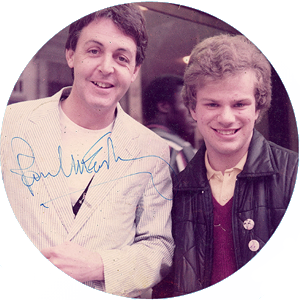This website uses cookies so that we can provide you with the best user experience possible. Cookie information is stored in your browser and performs functions such as recognising you when you return to our website and helping our team to understand which sections of the website you find most interesting and useful.
Paul McCartney’s 1970 press release was the end for the Fab Four, but it had been coming for years, and by the time Yoko Ono was answering for John Lennon in band meetings, the writing was on the wall. Mark Beaumont details the flash-points, fights, and behind-the-scenes tensions that led to the rift that never healed
fter eight years that shook the world, redefined music and rerouted popular culture, it took just one word to kill off the best band that ever lived. “Are you planning a new album or single with The Beatles?” Paul McCartney was asked in a press release for his first solo album McCartney, sent to journalists on 9 April 1970. Answer: “No”. And to drive the final nail home: “Do you foresee a time when Lennon-McCartney becomes an active songwriting partnership again?” “No.”
With that, the dream was over. On 10 April, the Daily Mirror ran the front-page headline “Paul Quits The Beatles”, and the media across the world ignited. Fans and reporters gathered outside the offices of Apple Corps at 3 Savile Row, distraught or eulogising. “The event is so momentous that historians may, one day, view it as a landmark in the decline of the British Empire,” reported a CBS News crew from America. “The Beatles are breaking up.”
A generation was plunged into shock and mourning. Not just the screaming hordes of Beatlemania, still barely in their twenties, but the counter-culture dreamers and social activists of flower power who had found mainstream acceptance in the band’s mid-period albums, and the darker rock and psychedelic experimentalists for whom The White Album and Abbey Road were such rich and influential pickings. For almost a decade, through The Beatles and their acolytes, music had owned the world; for many this felt like a full stop not just on the greatest band in history, but on the onward rush of an evolving, revolutionary youth culture.



I am of the opinion that the breakup could have been avoided if the situation was handled differently.
Obviously, they were squabbling over business interests and musical direction. Not surprising given that for a little over a decade, John, Paul, George (and a few years later Ringo) has spent most of their time together day in and day out. They were now approaching or at 30.
Each were significant musical artists in their own right.
Each had other interests – familial, social, cultural – and ambitions beyond the corporate “The Beatles.”
And each had strong egos.
I am left to wonder whether Paul ever regretted his decision to issue that press release (Paul, please feel to contact me; I’d love to know!)
Would it not have been more appropriate for the Beatles to get away from one another for a period of time, leaving room for other projects, and then regrouping from time to time ala the Rolling Stones or Bruce Springsteen and the E Street Band?
I say this because of two well-known incidents here in the States.
In 1976, Lorne Michaels – the producer of NBC-TV’s Saturday Night Live comedy show – tongue-in-cheekily offered the sum of $3000 to the Beatles if they would reunite on the show. Paul happened to be visiting John at John’s home in New York City that night and we’re watching the show. They were seriously tempted to grab a cab and get to the studio before the show ended but, in the end, decided against it. A couple of weeks later, George happened to be on the show and in a skit with Michaels attempted to claim 1/4 of the offer.
Given their collective senses of humor, it would appear that at least they were open to the idea.
A few years earlier in 1974, John was attending a National Football League game in Los Angeles that was featured on ABC-TV ‘s Monday Night Football. John popped into the broadcast booth and was asked by Howard Cossell, point blank, whether he could envision the Beatles reuniting John’s response was “Howard, you never know!”
Ah, what might have been?